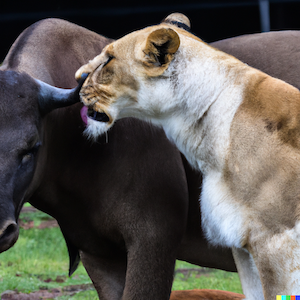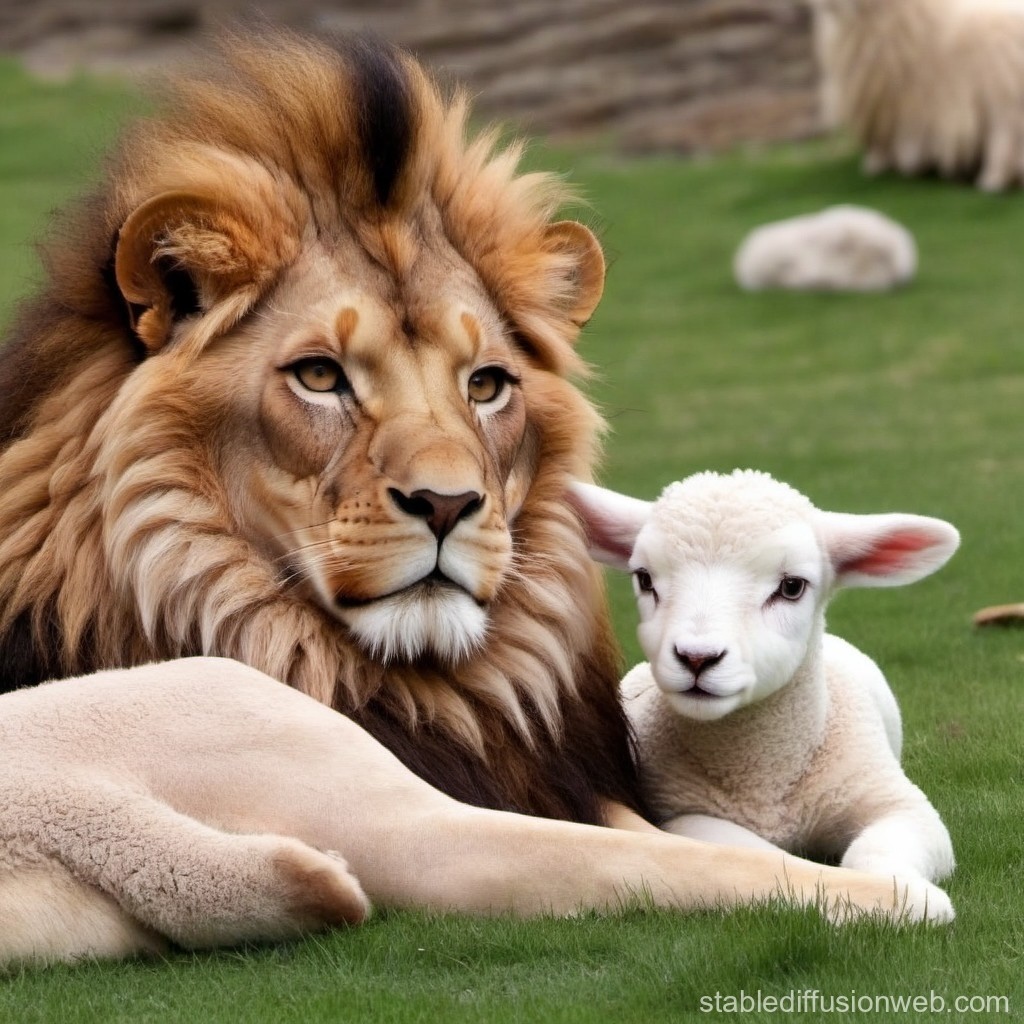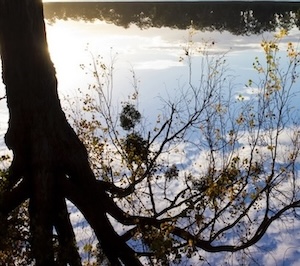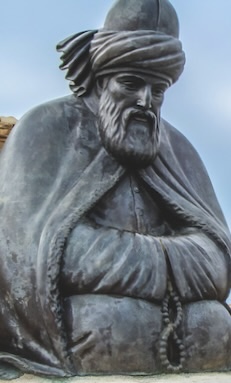MECHTHILD OF MADGEBURG: 1207-1282
Of all that God has shown me
I can speak just the smallest word,
No more than a honeybee
Takes on his foot
From an overspilling jar

BASHO JAPAN: 1644
In Kyoto,
Hearing the cuckoo
I long for Kyoto
Death-sick on my journey
My dreams run out ahead of me
Across the empty field
KABIR: INDIA
Kabir claimed that understanding this poem signified that you comprehend hidden meanings underlying the Universe and Spirit. See if you can work out what he meant by this.

Brother, I’ve seen some
Astonishing sights:
A lion keeping watch
Over pasturing cows;
A mother delivered
After her son was born;
A guru prostrated
Before his disciple;
Fish spawning
At the tops of trees
A cat carrying away
A dog;
A gunny-sack
Driving a bullock-cart;
A buffalo going out to graze,
Sitting on a horse;
A tree with its branches in the earth.
Its roots in the sky;
A tree with flowering roots.
Perhaps the underlying message is a mystical one, rather than a religious one, something like the meaning or themes in one of my favourite novels, ‘Life of Pi’ by Yan Martel, converted to film by director Ang Lee.
RUMI: 1207: LIFT NOW THE LID OF THE JAR OF HEAVEN
Pour cupbearers, the wine of the invisible,
The name and sign of what has no sign!
Pour it abundantly, it is you who enrich the soul;
Make the soul drunk, and give it wings!
Come again, always fresh one, and teach
All our cupbearers their sacred art!
Be spring jetting from a heart of stone!
Break the pitcher of soul and body!
Make joyful all lovers of wine!
Foment a restlessness in the heart
Of the one who thinks only of bread!
Bread’s a mason of the body’s prison,
Wine a rain for the garden of the soul.
I’ve tied the ends of the earth together,
Lift now the lid of the jar of heaven.
Close those eyes that see only faults,
Open those that contemplate the invisible
So no mosques or temples or idols remain,
So ‘this’ or ‘that’ is drowned in His fire.
Turkish dancers from Pixabay, carrying on the tradition of ancient Sufis, echoing the belief in intoxication as a spiritual or mystical portal into the divine.
KING DAVID: 1000BC: PSALM 23 KINGDOM OF ISRAEL
The Lord’s my shepherd I’ll not want
He maketh me to lie down
In pastures green
He leadeth the quiet waters beside
He restoreth my soul;
He leadeth me in the paths of righteousness
Even for his own name’s sake.
Yea, though I walk through the valley
Of the shadow of death, I will fear no evil
For thou art with me; thy rod and thy staff
They comfort me.
Thou preparest a table before me
In the presence of mine enemies
Thou anointist my head with oil;
My cup runneth over. Surely goodness and
mercy shall follow me all the days of my life.
David was a warrior, theologian, king and poet. The music of the psalms survives centuries and translations and preserves them as literature




Not all spiritual poetry is religious in the sense that most of us apprehend this concept: of belief in a Christian or other religious deity overseeing our actions here on earth. My own concept of spirituality is that we are all part of it, as a speck of sand is part of the whole beach, and a drop of water makes up the vast ocean. Divinity is in and of all of us, each one playing our own part in the whole structure of the cosmos or the universe. And our human brain is insufficient to comprehend the complexity of what this all means. Many wise poets down through the ages have wrestled with these thoughts and ideas and have managed to express in their own terms universal truths such as these examples given above.